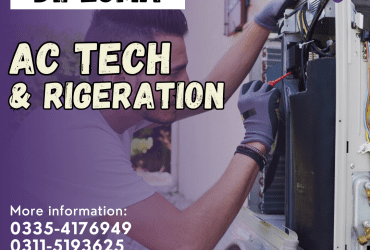Ad Details
-
Ad ID: 778498
-
Added: January 13, 2024
-
Sale Price: ₨123
-
Regular Price: ₨123
-
Location: Pakistan
-
State: AJK
-
City: rawalakot
-
Phone: 03115193625
-
Views: 66
-
Website: www.icollegete.com
Description
International College of Technical Education.
Head Office :
Office # 27, Second Floor, Maryam Shadi Hall Plaza
(Airies Plaza), Shamsabad, Murree Road,
Rawalpindi, Pakistan 46000.
Email : info@icollegete.com
Contact : 051-8736681, 0311-5193625, 0092-335-4176949
The Hybrid and Electrics Vehicles course comprises in-class lectures and lab time. During labs, you will partake in demonstrations of disconnect procedures, safely testing high voltage cables and connections, accessing scan tool data and conducting examinations of sub systems.
The Hybrid and Electric Vehicle Course will develop your skills around hybrid technology vehicles. You will focus on hybrid & electric safety, operation principles, series & parallel, motor assisted systems, extended range hybrids, electric vehicle operation, servicing & maintenance and diagnostics. Hybrid electric vehicles are powered by an internal combustion engine and an electric motor, which uses energy stored in batteries. A hybrid electric vehicle cannot be plugged in to charge the battery. Instead, the battery is charged through regenerative braking and by the internal combustion engine.The Hybrid and Electrics Vehicles course is beneficial for both licensed and non-licensed students looking for an introduction to both types of vehicles.
The course provides an overview of the purpose of hybrid technology, along with its history and current electric car application. Emphasis is on safe operating practices when servicing both hybrid and non-hybrid systems.
Servicing hybrid and electric vehicles is divided into:
• Necessary tools (digital volt ohm meters, scan tools and oscilloscopes);
• Safety precautions (proper protective equipment, high voltage concerns and high voltage disconnect procedures);
• Hybrid systems (battery types and construction, drive and traction motors);
• Atkinson cycle engines and braking systems, both hydraulic and regenerative.
Specialized hybrid systems include Toyota Synergy, Honda IMA, GM BAS, GM, BMW and Daimler Benz 2 mode, Hyundai/Kia, Porsche and Ford. The electric vehicles examined include Tesla, Leaf, Ford Focus, Volt, iMiEV and others.
• Perform minor repairs and servicing on hybrid vehicles;
• Safely disconnect and power down hybrid systems;
• Use diagnostic equipment;
• Access hybrid information and safety procedures.
Learning Objectives
Define and analyze fundamental electrochemistry of battery operation and performance requirements for HEV, PHEV, EREV and full electric vehicle applications
Estimate the size of a cell to meet a specific requirement
Create a cradle-to-grave, or cradle-to-use list of materials used in any type of automotive battery
Compute the temperature response of battery cell and pack assemblies for a simple model
Describe the functions performed by a Battery Management System (BMS)
Explain different approaches to estimating state of charge, state of health, power and energy
Apply the operation of brushless dc and induction motors to HEV and EV vehicles
Define the torque speed curves for motors and the application to electric and hybrid electric vehicles
Describe the features of buck, boost, and Transformer converters
Compare and contrast the various industry and regulatory standards for hybrid vehicle components, batteries, and charging systems
Describe the main hybrid and electric vehicle development considerations and performance requirements for various vehicle system
Identify how to define key vehicle system requirements and select and size system components that best meet those requirements














Leave a Comment
Your email address will not be published. Required fields are marked. *